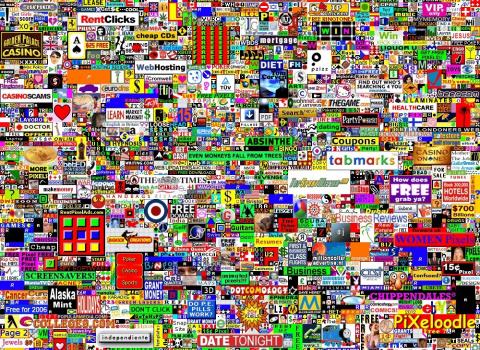There is nothing new about Companies wanting to gather data about individuals. The basic assumption is that the more they know about you the easier it is to send specific marketing messages, which will result in you buying more. Back in the day this used to be limited to customer surveys with perhaps the incentive of being entered into a prize draw – the terms of the ‘transaction’ were fairly clear – here is my data which I am happy to provide on the basis that I might win a holiday.
In the online world the market for your data has taken on a more sinister feel, although in reality it is the same type of ‘transaction’. Companies like Google and Facebook spend millions of pounds (or dollars) developing complex systems which can serve millions of users and they do this at no direct cost to the majority of users. The cost to you as a user is the data you provide to them which they can then try and monetise.
With all the recent media attention on the introduction of the General Data Protection Regulations (GDPR) and also the Facebook and Cambridge Analytica story, users are becoming much savvier about the value of this data which they have been providing to these Companies for free.
I read a story this week about a user who has tried to auction his Facebook data on eBay although eBay have now removed this item.
So how can regular users make money from their data?
Your digital wallet
Lifestyle platforms such as Ant Financial are starting to emerge and could provide a way for users to gain benefits from using a single platform to access various services. Users of web services don’t like the idea that their data is being collected and sold behind their backs, however they are more comfortable with using Lifestyle platforms where the ‘data transaction’ is more transparent and there is a direct benefit to users in terms of ease of access to a broader range of services and discounts.
In the UK, Monzo Bank is carving a niche for itself in the market and ultimately plans to make money from offering other Lifestyle benefits to it’s users. Financial institutions who we already have a relationship with are ideally placed to offer us other Lifestyle benefits. We generally have to trust our banks and they hold details of our financial transactions, so if they do it correctly, we could see them becoming more of a Lifestyle platform than just a bank. Unfortunately, some of the big UK banks are using older less flexible backend systems which will probably mean that it will be left to newer more agile banks such as Monzo and other, yet to emerge, platforms to provide these services.
The value of your data
Internet users are rapidly starting to realise that their data has a value. The more data you can have about an individual across a range of sites and platforms adds to this value. One of the main obstacles which Lifestyle platforms will need to face is how comfortable users will be of providing or contributing their data with a single organisation. In my opinion it will come down to the benefit which users are offered in return for their data and whether the companies behind the Lifestyle platforms will be willing to offer the right level of return.
Alternatively, we could see platforms emerge which users control, perhaps built using distributed technologies such as Blockchain. Users could then provide access to particular pieces or subsets of their data to specific organisations in return for a specific benefit. If users keep control of their data and it isn’t stored centrally then this could prevent it being traded by organisations.
I think data will rapidly become a form of currency in itself and it will be interesting to see how organisations and individuals adapt.


